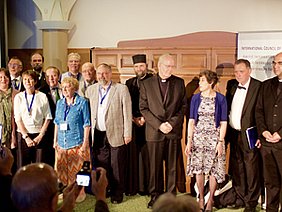The hospitality bestowed upon us in Budapest and in Kecskemét has really been extraordinary, thus I begin this first report on the 2018 ICCJ conference by extending gratitude to all those who made us feel at home in Budapest and Kecskemét.
Many of us undoubtedly arrived in Hungary without knowing quite what to expect. Hungary is home to a large Jewish population by European standards, there are numerous churches of various affiliations, and there is a tiny Muslim population. The current political situation in Hungary is worrisome for anyone who is engaged in interreligious dialogue - that has to be said. It is evident to me today, that the way minorities within Hungary deal with and have dealt with issues concerning their place in Hungarian society has been that of trying to blend in. Assimilating to a large extent, while trying to offer something to society that will benefit the majority. This is not unique in any way, it happens in many places. That being said, the process of blending in not only has an effect on how you portray yourself in society; it also effects how you are viewed by others.
We began our conference on Sunday June 24th with a thought-provoking opening session with two esteemed keynote speakers: Cardinal Dr Péter Erdö and Prof. Dr Judith Frishman.
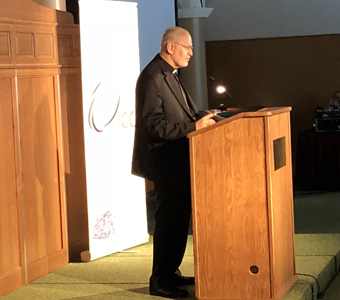 | 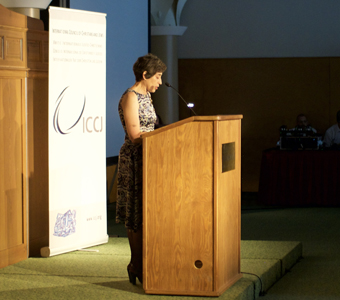 |
| Cardinal Péter Erdö, Archbishop of Esztergom-Budapest and the Primate of Hungary | Prof. Dr Judith Frishman, Professor of Judaism at the Institute for Religious Studies, Leiden University, Netherlands |
Both speakers referenced the Book of Genesis when speaking about harmony and incongruity, and professor Judith Frishman connected scripture to a modern-day issue when drawing parallels between the corruption of humankind at the time of the biblical flood to the deeply disturbing corruption and violence that was brought to light by the “Me Too”-movement. When people fear interaction with God and the Other, they become isolated from their humanity. And humanity is a precondition for dialogue. Professor Frishman posed the following two questions: What is our nature as human beings, and what kind of human beings do we want to be? She went on to stating that Judaism introduced the notion that humankind must create itself and renew itself. Humankind has a choice, and it is up to us as individuals and communities to participate in the renewal of our world. Dialogue means treating the future as potential improvement, without losing knowledge of what has been. Remembering; professor Frishman continued - is important but not enough. Being in union, such as the partnership between Jews and Christians of today, demands of us to be active in pursuing the good.
Tragedy must not be met with resignation, professor Frishman continued. Considering evil as the normal course of the world can set one on a troubled and cruel path. Unity, a togetherness without giving up our particularities, is our calling and our responsibility.
Bishop János Székely, the Catholic president of the Hungarian Council of Christians and Jews, one of the two Hungarian member organizations of the ICCJ, summarized the essence of the opening event in the following way: God wants us human beings to create unity, and God also understands how difficult unity is to achieve.
On Wednesday we wrapped up our conference in the opera house in Kecskemét, a truly stunning location to which we were kindly invited and greeted by the mayor of the city, Klaudia Szemereyné Pataki.
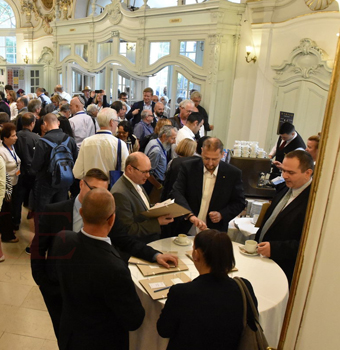 | 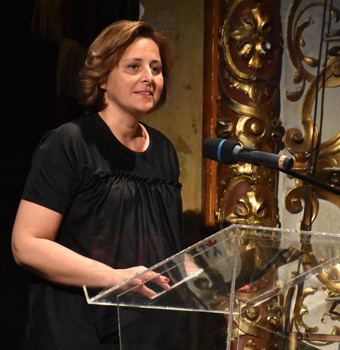 |
| Arrival of conference participants at the opera house of Kecskemét | Klaudia Szemereyné Pataki, Mayor of Kecskemét |
During the final plenary session, dialogue veteran Judy Banki stated that she has always been skeptical towards reconciliation that requires abandonment of particularities. When engaging in dialogue, within our own community or with people of other faiths or none, we mustn't abuse dialogue by imposing our own convictions onto our partners in dialogue. As long as we do our best to utilize a common language - or at least offer the Other our cheat-sheet - we must rest assured that we are needed in dialogue and in the continuous (re)creation of unity and humanity by being the way we are. During our Sunday opening session, professor Frishman stated that remembering is not enough. Judy Banki concluded her address in Kecskemét during the closing session by stating that worrying is not enough. Engaging in dialogue is letting the Other know that we care. Rev Dr Volker Haarmann went on to quoting Abraham Joshua Heschel: Actions teach. The dividing line, Dr Haarmann continued, is no longer between individual religions and communities, but rather between those who seek peace and those who don't.
In my opinion, the Kecskemét sessions were a milestone event for the following reason: well over 60 locals with little or no previous experience of the ICCJ joined us in our debriefings. We all met our Other during the workshops. Some of us met an Other that we are familiar with, while others embarked on the creation of a new partnership. The hospitality, generosity and curiosity of our Hungarian hosts and guests sent a powerful message about how committed the Hungarian Jews, Christians, and Muslims are to dialogue, and how proud they are of their communities. While political challenges and occasional cultural obstacles remain, we have drafted our language of dialogue, and we have offered our cheat-sheets to our neighbor. This is the soil in which we will continue to foster dialogue in Hungary and beyond.
Editorial remark: A second conference report by Nike Snijders entitled "Re-evaluating the Concept of 'Youth' in an Interfaith Setting" will follow soon ...
Keynotes, papers, lectures, and pictures of the ICCJ 2018 conference in Hungary can be found here.

